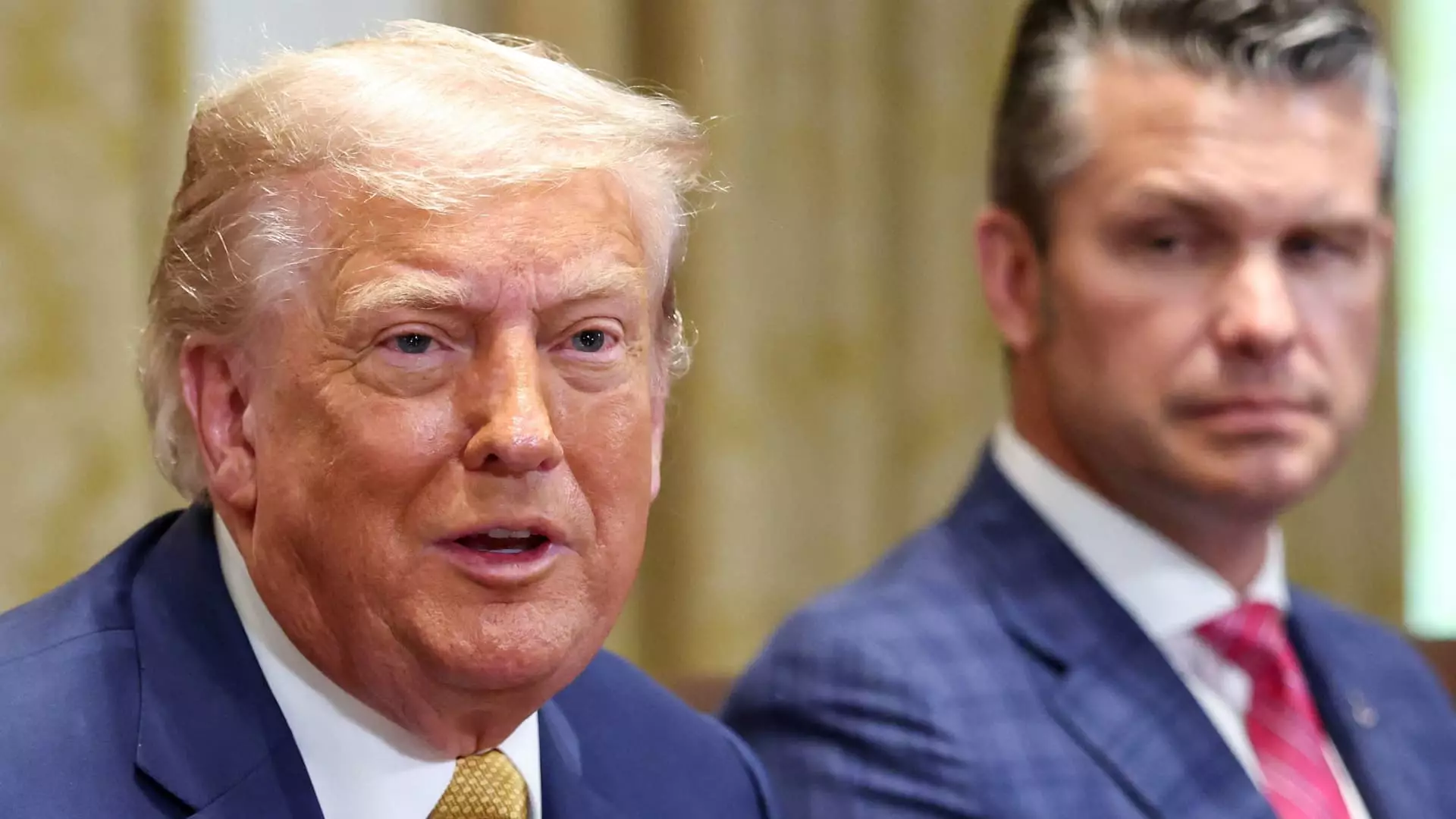President Donald Trump’s recent pronouncement of potentially imposing up to 200% tariffs on imported pharmaceuticals exemplifies a troubling tendency toward protectionist policies that threaten America’s long-term health and innovation capacity. While outwardly appealing to domestic industries, such threats are ultimately superficial and represent a misguided pursuit of immediate political wins at the expense of deeper national interests. Tariffs, especially on critical sectors like pharmaceuticals, serve as a tool of division rather than progress, risking a ripple effect of economic destabilization and public health crises.
What makes Trump’s strategy particularly damaging is its inherent inconsistency. The administration’s prior threats and quick reversals reveal a pattern of impulsive policymaking not grounded in comprehensive analysis or foresight. Promising high tariffs seems more like a rhetorical stunt than a substantive policy proposal, especially given the uncertainty surrounding implementation and the long lead time promised—somewhere between one and a half years. This inaction behind a facade of decisive language only exacerbates market volatility without delivering concrete benefits.
The Industry at a Crossroads: Innovation or Isolation?
Pharmaceutical companies are already navigating a complex environment riddled with challenges—rising R&D costs, regulatory pressures, and public scrutiny over drug pricing. Trump’s tariff threats add a new layer of risk, potentially fueling costs and disrupting the delicate supply chains that deliver life-saving medications. While some industry players like Eli Lilly and Johnson & Johnson are shifting manufacturing to the US, these moves are reactive, not strategic, driven more by political rhetoric than long-term planning.
The looming threat of tariffs appears to disregard the global nature of modern medicine. Many lifesaving drugs are produced through international collaborations that rely on open markets. Imposing punitive tariffs risks escalating costs and stifling innovation, leading to a decline in the quality and accessibility of healthcare. Instead of nurturing a resilient and innovative pharmaceutical sector, protectionist measures threaten to isolate America from vital global advancements—an approach that ultimately undermines the very foundation of progress.
National Security or Economic Folly?
The invocation of national security to justify tariffs on pharmaceuticals raises questions about the true intent behind these policies. While self-sufficiency can be a noble goal, wielding tariff threats as a shield against economic globalization overlooks the complexity of the issue. Genuine security depends on a robust, innovative, and well-regulated pharmaceutical ecosystem, not inward-looking barriers that could hinder collaboration, inflate costs, and diminish access.
Furthermore, the deployment of Section 232 investigations, historically used for defense-related industries, in the context of pharmaceuticals signals a dangerous shift toward politicizing economic decisions that should be grounded in science and rational policy. This approach risks turning healthcare into a bargaining chip rather than an investment in citizens’ well-being. If the goal is truly to protect public health, nuanced policies supporting research, domestic manufacturing, and fair trade should take precedence over reckless tariffs that threaten to do more harm than good.
In essence, Trump’s tariff threats highlight a troubling tendency among some leaders to favor short-term political gain over the nuanced complexities that underpin a thriving, innovative healthcare system. Locking America into protectionism may seem appealing in the moment but could do irreversible damage to the foundation of future medical breakthroughs and public trust.

